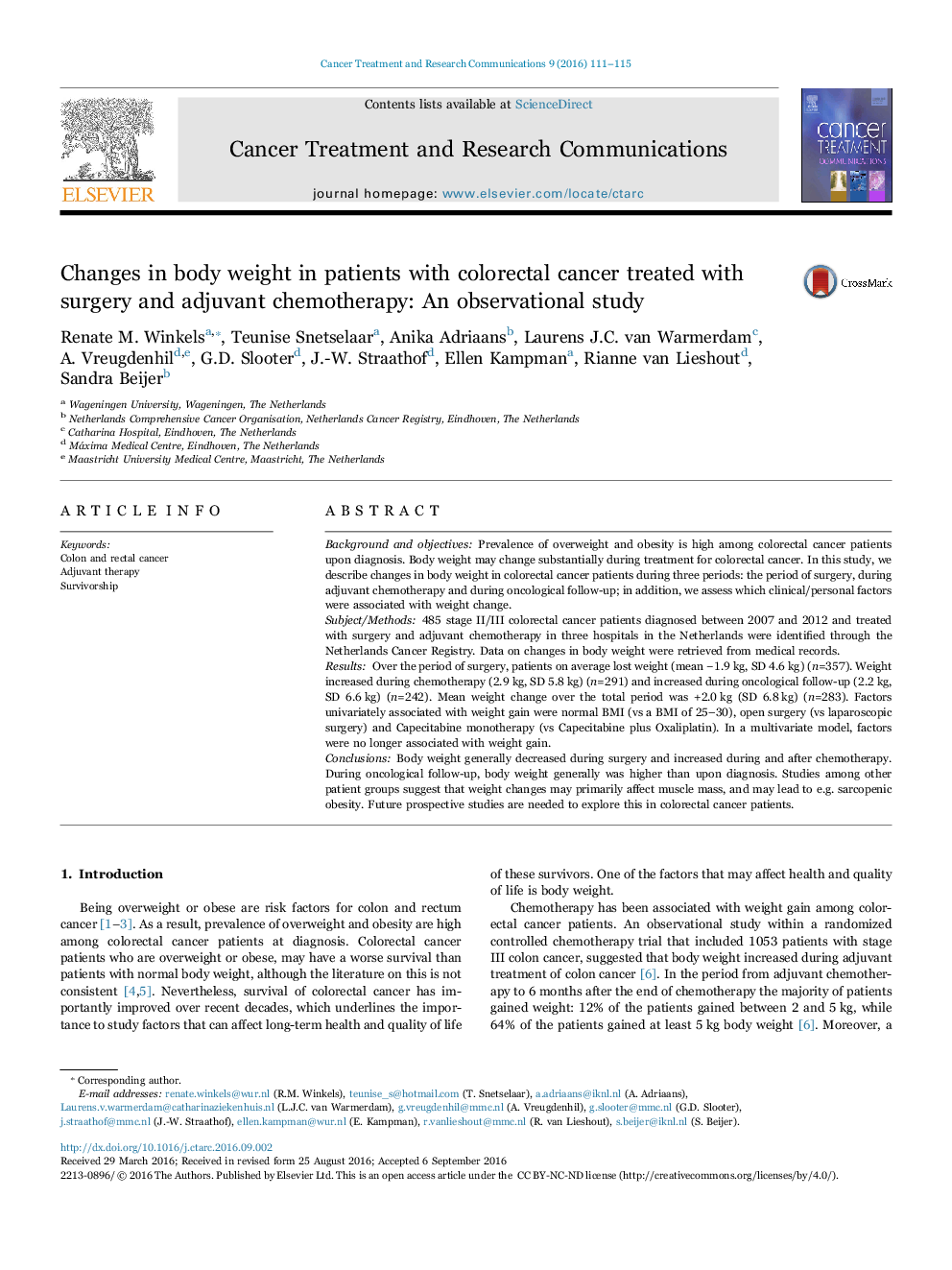| Article ID | Journal | Published Year | Pages | File Type |
|---|---|---|---|---|
| 6190341 | Cancer Treatment and Research Communications | 2016 | 5 Pages |
Background and objectivesPrevalence of overweight and obesity is high among colorectal cancer patients upon diagnosis. Body weight may change substantially during treatment for colorectal cancer. In this study, we describe changes in body weight in colorectal cancer patients during three periods: the period of surgery, during adjuvant chemotherapy and during oncological follow-up; in addition, we assess which clinical/personal factors were associated with weight change.Subject/Methods485 stage II/III colorectal cancer patients diagnosed between 2007 and 2012 and treated with surgery and adjuvant chemotherapy in three hospitals in the Netherlands were identified through the Netherlands Cancer Registry. Data on changes in body weight were retrieved from medical records.ResultsOver the period of surgery, patients on average lost weight (mean â1.9Â kg, SD 4.6Â kg) (n=357). Weight increased during chemotherapy (2.9Â kg, SD 5.8Â kg) (n=291) and increased during oncological follow-up (2.2Â kg, SD 6.6Â kg) (n=242). Mean weight change over the total period was +2.0Â kg (SD 6.8Â kg) (n=283). Factors univariately associated with weight gain were normal BMI (vs a BMI of 25-30), open surgery (vs laparoscopic surgery) and Capecitabine monotherapy (vs Capecitabine plus Oxaliplatin). In a multivariate model, factors were no longer associated with weight gain.ConclusionsBody weight generally decreased during surgery and increased during and after chemotherapy. During oncological follow-up, body weight generally was higher than upon diagnosis. Studies among other patient groups suggest that weight changes may primarily affect muscle mass, and may lead to e.g. sarcopenic obesity. Future prospective studies are needed to explore this in colorectal cancer patients.
